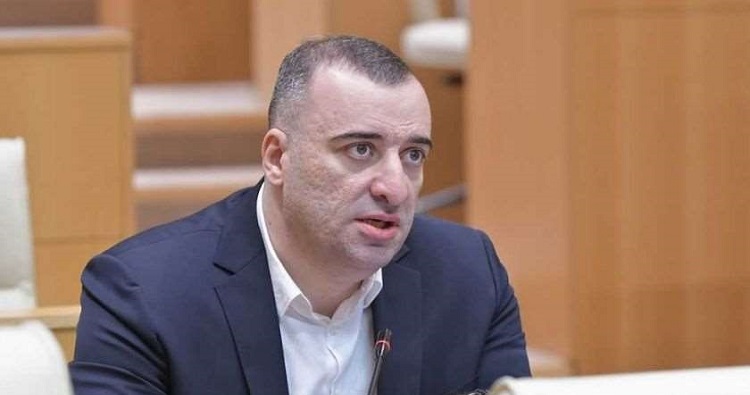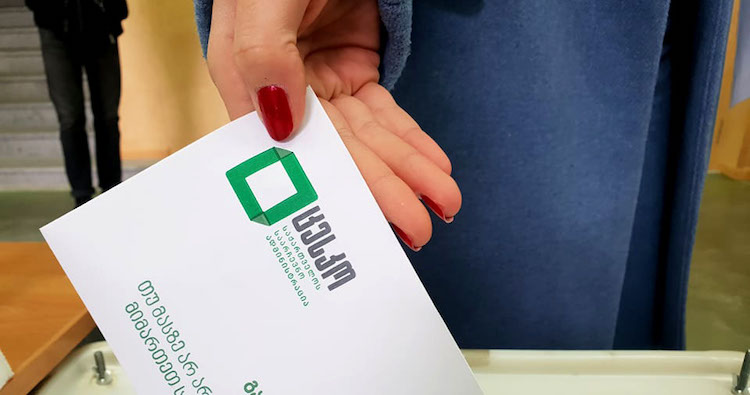Electronic voting may cover 90% of voters, other ballot papers to be digitised - ruling party MP

Rati Ionatamishvili, an MP of the ruling Georgian Dream party, on Wednesday said the new initiative for introducing electronic voting in elections in the country was not in the opposition’s interests. Photo: parliament of Georgia press office
Rati Ionatamishvili, an MP of the ruling Georgian Dream party, on Wednesday said the new initiative for introducing electronic voting in elections in the country could cover 90 percent of voters instead of initially offered 70 for the 2024 parliamentary elections, with the remaining ballot papers being instantly digitised and uploaded online after their retrieval from ballot boxes.
Ahead of a discussion of electoral amendments at a plenary session of the parliament later today, Ionatamishvili said the initiative had been drafted in accordance with the European Union’s conditions for granting the country a membership candidate status and condemned the “radical part” of the domestic opposition for having “inadequate reaction” towards the amendments.
The radical opposition's reaction to the changes was so inadequate that it can be caused by a single motive - that there will be no room for speculations and manipulations”, said the MP. He claimed the amendments would “eliminate speculation on rigged votes and fabricated polls”, adding “that is why the opposition is so saddened”.
 The amendments concern the 2024 parliamentary elections in Georgia. Photo: Nino Alavidze/Agenda.ge.
The amendments concern the 2024 parliamentary elections in Georgia. Photo: Nino Alavidze/Agenda.ge.
Explaining procedures for electronic voting, fellow MP of the ruling party, Givi Mikanadze, said last month that a paper, instead of a ballot box, would be used for voting, with the choices cast in an electronic counting machine.
There will be no remote voting to prevent security threats and outer influence on the process. The machine will not be connected to the internet, it will just count the votes electronically. There will be no invalid ballots, or need for exit polls or the parallel vote count”, he said.
Irakli Kobakhidze, the chair of the ruling Georgian Dream party, announced earlier last month the ruling team had made a decision on a widespread introduction of an electronic voter registration and voting system starting with the 2024 elections.
Kobakhidze noted the government was “actively working” on the implementation of the 12-point conditions outlined by the European Union, which, among other things, involves revision of the Georgian election code.
 Tweet
Tweet  Share
Share